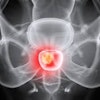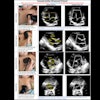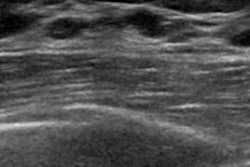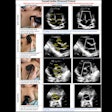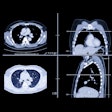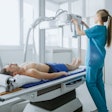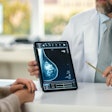Dear AuntMinnie Member,
Benign breast disease found on percutaneous biopsy is associated with a higher risk of breast cancer, according to a report that garnered the most page views this week on AuntMinnie.com. A team reported that risk was elevated in these patients for both invasive cancer and ductal carcinoma in situ (DCIS) in comparison with the general population.
Opportunistic screening is one of the hottest areas of research in radiology. In a new study, researchers concluded that opportunistically screening for lung cancer on low-dose CT exams performed for other indications could lower lung cancer mortality by nearly 50%.
In news that generated the third-highest page views this week, a number of prominent imaging vendors announced on Monday that they have left the Medical Imaging Technology Alliance (MITA) to launch a new imaging division at Advanced Medical Technology Association (AdvaMed).
Meanwhile, MRI safety remains a vital issue. An award-winning exhibit at RSNA 2023 offered tips and answered questions on important topics such as how MRI staff can reduce the impact of radiofrequency-induced heating and how quenching can be avoided. Click here for our coverage.
In addition, a new PET radiotracer used in diagnosing Alzheimer’s disease may also be utilized to measure vascular changes in the brain during PET/MRI exams, potentially enabling a more comprehensive picture of brain pathology involved in cognitive decline.
Here’s the full list of our top 10 stories of the week:
- Benign breast disease found on percutaneous biopsy ups cancer risk
- Opportunistic low-dose CT lung cancer screening reduces mortality
- MITA members find new home for imaging equipment advocacy efforts
- Don’t get burned: Expert tips and tricks on MRI safety
- PET/MRI reveals separate Alzheimer’s biomarkers in single scan
- AI predicts responses in patients with prostate cancer
- ChatGPT outperforms clinicians in post-negative test disease probability
- MRI radiomics features help predict Alzheimer’s progression
- Can ‘normal filtering’ AI save radiologists’ time?
- PET/CT shows impact of different COVID-19 vaccines
